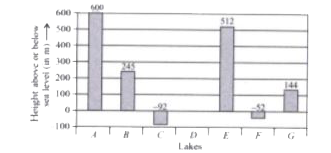PONDS AND LAKES
Step-by-Step Solution
1. Definition of Ponds and Lakes:
- Both ponds and lakes are classified as water bodies. They are areas filled with water, but they differ in size and characteristics.
2. Characteristics of Lakes:
- Lakes are larger in size compared to ponds. They contain stagnant water, meaning the water does not flow and remains in one place.
- Lakes can be formed naturally through geological processes or artificially created by humans.
3. Nutrient Presence in Lakes:
- Lakes are rich in nutrients, particularly nitrogen and phosphorus. These nutrients support the growth of various plants and trees around the lake.
4. Characteristics of Ponds:
- Ponds are smaller than lakes but share the characteristic of having stagnant water.
- Ponds can also be formed naturally, such as by rainwater accumulation, or they can be created artificially by humans.
5. Comparison:
- In summary, the main differences between ponds and lakes are their size and the scale of their water bodies, with lakes being larger and more nutrient-rich.
- Both ponds and lakes are classified as water bodies. They are areas filled with water, but they differ in size and characteristics.
- Lakes are larger in size compared to ponds. They contain stagnant water, meaning the water does not flow and remains in one place.
- Lakes can be formed naturally through geological processes or artificially created by humans.
- Lakes are rich in nutrients, particularly nitrogen and phosphorus. These nutrients support the growth of various plants and trees around the lake.
- Ponds are smaller than lakes but share the characteristic of having stagnant water.
- Ponds can also be formed naturally, such as by rainwater accumulation, or they can be created artificially by humans.
- In summary, the main differences between ponds and lakes are their size and the scale of their water bodies, with lakes being larger and more nutrient-rich.
Similar Questions
Knowledge Check
Which among the following is the Largest Freshwater Lake in India?
A. Dal Lake
B. Thol Lake
C. Pushkar Lake
D. Wular LakeAABBCDDCWhich one of the given responses would be a meaningful order of the following words ?
a. Ocean b. Sea c. Pond d. lakeAc, a, d, bBc, d, b, aCa,d,b,cDb,d,c,aSelect the related word pair from the given alternatives.
Pond : Lake :: ........ : ........AHill : MountainBChurch : ReligionCStethoscope : MachineDGold : Ornament
Which is the largest fresh water lake in the world?
A Lake Victoria
B. Lake Erie
C Lake Superior
D. Lake Ontario
View SolutionWhat does the imaginary line passing through Lake Ontario, Lake Erie, Lake Huron and Lake Superior represent?
View SolutionThe world's largest lake is- a) Lake Victoria b) Lake Superior c) Caspian Sea d) Black Sea
View SolutionA pond is a
View SolutionStatements: Some rivers are lakes.
All lakes are ponds.
Conclusions: All ponds are lakes.
II Some rivers are ponds.
View Solution

